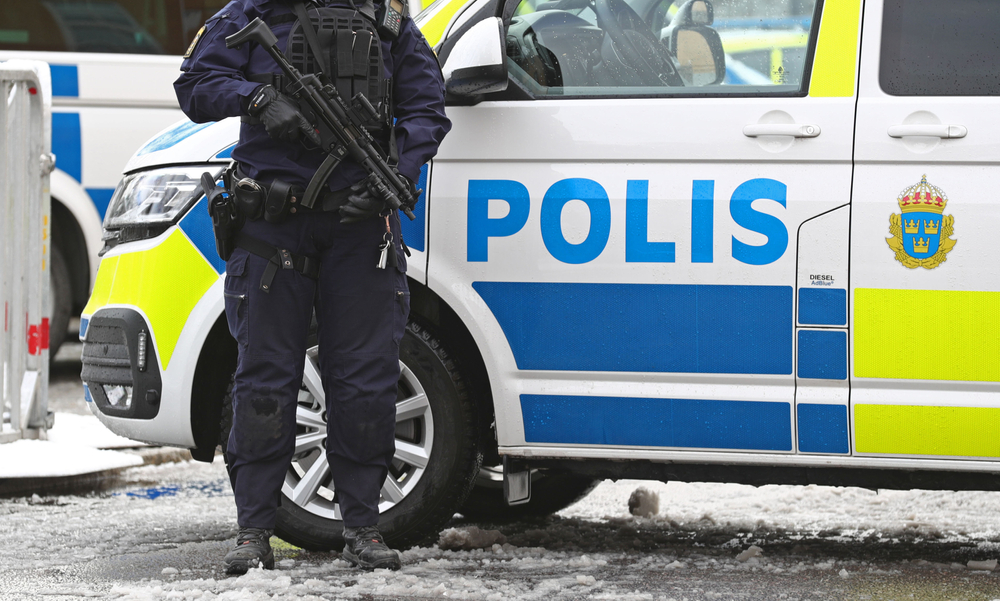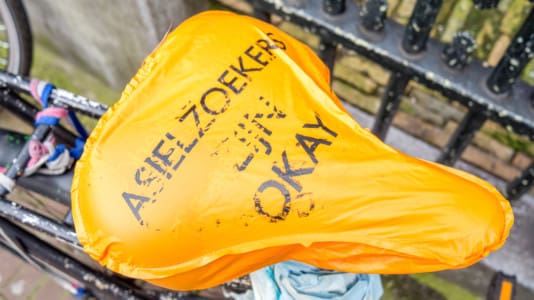An explosion on Wednesday outside an office building in the Kista district of Stockholm brought the number of bombings in Sweden to double digits already for the year.
The blast, which occurred in the early hours of Wednesday in the Swedish capital, was the result of a large explosive charge that detonated, causing extensive damage to an office building, police spokesperson Ola Osterling told Swedish public broadcaster SVT.
“The explosive charge has destroyed the gate, and we also have damage on the first and second floors,” he said, confirming that no casualties had been reported as a result of the explosion.
The bombing came just one day after a restaurant in the Södermalm island district of Stockholm was targeted by a powerful explosion. That incident resulted in considerable damage to the restaurant and nearby residential buildings, which suffered shattered windows as a result of the blast.
[pp id=60903]
Police are investigating a possible link between the attacks and shootings in the Stockholm suburbs of Märsta and Kallhäll earlier this year, according to SVT. They are refusing to rule out gang-related violence.
SVT reported on Wednesday that the recent bombings may be tied to a power struggle in the drug trade in the Swedish city of Sundsvall, a market currently controlled by a man linked to the Stockholm office buildings targeted with explosives.
“The police suspect that another prominent figure within the Swedish gang milieu wants to take over the drug trade in the area,” the broadcaster claimed.
Explosions and shootings have become commonplace across Sweden in recent years, and the increase in gang violence shows no sign of slowing down in 2023.
[pp id=61261]
In the southern Stockholm district of Farsta earlier this year, residents were told by police to stay in their homes after an explosive device had been detonated in the stairwell of a residential building in the early hours.
On Jan. 2, police were called to the site of two incidents in Grimsta, western Stockholm, after two powerful bomb explosions devastated apartment buildings.
“It was an extremely powerful explosion that caused extensive damage to the entrance to the residential building,” police officer Ola Osterling told news outlet TT at the time.
“Terrible that this happens in Sweden in 2023. You should be safe in your own home, but apparently not,” a local resident told SVT.
Despite the police investigations, recent statistics cited by Radio Sweden revealed that many often lead nowhere, with just one in three bombings in Sweden resulting in an arrest and successful prosecution.
[pp id=59873]
A spate of shootings over the holiday season in December saw Sweden post a record 63 fatal shootings last year, prompting the country’s Justice Minister Gunnar Strömmer to claim the country is failing in its fight against gang crime.
Shootings and bombings have become synonymous with the rapidly rising gangland warfare in the country, particularly in the capital of Stockholm. Most attacks take place in the capital’s low-income, vulnerable suburbs.
Back in 2019, when questioned on the ethnicity of those arrested in connection with the growing trend of shootings and bombings, Swedish intelligence chief, Linda H Straaf, revealed many suspects “have grown up in Sweden and they are from socio-economically weak groups, socio-economically weak areas, and many are perhaps second- or third-generation immigrants.”
In 2020, the country’s then-deputy police chief Mats Löfving revealed there were approximately 40 migrant gangs operating in Sweden that were mainly responsible for the increase in violent crime.
“These clans have come to Sweden solely to organize crime. They work to create power, they have a great capacity for violence, and they want to make money. And they do that through drug crimes, violent crimes, and extortion,” Löfving told Swedish television at the time.






